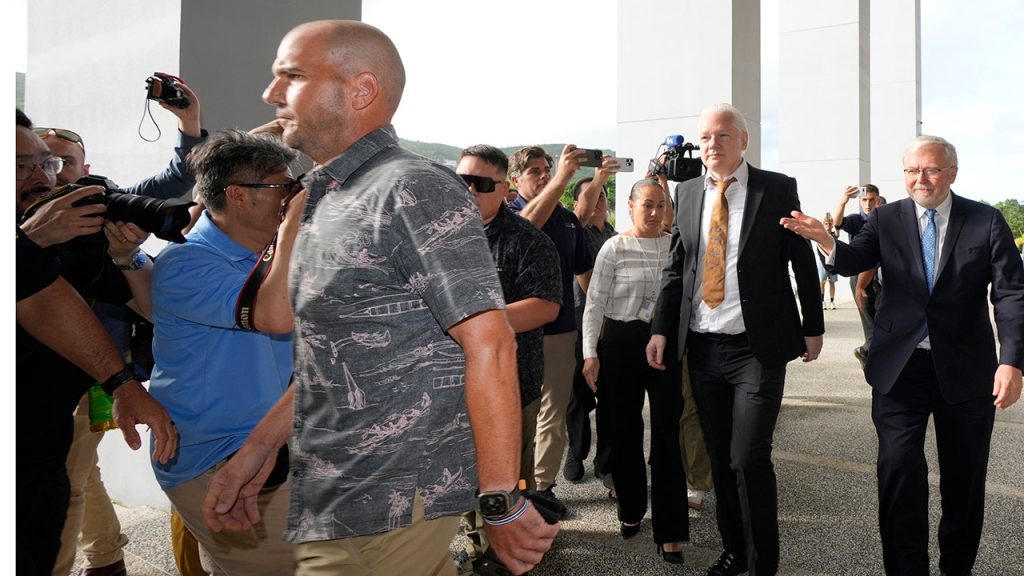WikiLeaks founder Julian Assange pleaded guilty to a single count of conspiring to obtain and disclose information related to national defense as part of a deal with federal prosecutors to resolve a long legal battle over the leaking of military secrets. The plea was entered in federal court in Saipan, the capital of the Northern Mariana Islands, where Assange chose to avoid entering the continental United States. Despite believing that the charges against him violated his First Amendment rights, Assange acknowledged that encouraging sources to provide classified information for publication can be illegal.
Assange, who is 52 years old, is set to be sentenced to time served, which amounts to 62 months – the same length of time he spent in prison in the United Kingdom. This resolution brings an end to a divisive legal saga that involved complex questions surrounding press freedom and national security. The case against Assange has been a contentious issue that has sparked debates about the rights and responsibilities of journalists in handling sensitive information. The Associated Press contributed to the coverage of this development in the case.
The decision by Assange to plead guilty and accept the terms of the agreement with prosecutors marks a significant turning point in his legal troubles. The lengthy battle over the leaking of military secrets, which began with Assange’s involvement in WikiLeaks, has come to a close with this plea deal. Despite his earlier stance that the charges infringed on his rights, Assange ultimately chose to concede and take responsibility for his actions. The conclusion of this case raises important ethical and legal considerations regarding the balance between national security concerns and the press’s role in reporting on sensitive matters.
The plea agreement entered by Assange in federal court brings closure to a high-profile and controversial legal dispute that has captured global attention. The decision to resolve the case through a guilty plea and sentencing based on time served underscores the complexities of balancing press freedom and national security in the digital age. As the founder of WikiLeaks, Assange has been at the center of debates over the dissemination of classified information and the potential consequences for individuals and governments involved. The resolution of the case highlights the challenges faced by journalists and whistleblowers in navigating these issues.
The legal saga involving Julian Assange and his role in the leaking of military secrets has been a complex and contentious chapter in the history of press freedom and national security. The plea deal entered by Assange, which led to his guilty plea for conspiring to obtain and disclose classified information, reflects the dilemmas faced by individuals and organizations involved in disclosing sensitive data. The resolution of this case raises questions about the limits of free speech and the implications for those who handle classified information. The outcome of this legal battle will have lasting implications for the future of journalism and the responsibilities of those who publish confidential data.
In conclusion, Julian Assange’s guilty plea in connection with the leaking of military secrets and his acceptance of a plea deal to close the legal saga surrounding his actions have profound implications for press freedom and national security. The resolution of this case through a sentencing of time served highlights the challenges faced by individuals and organizations involved in disclosing classified information. The decision by Assange to acknowledge his role in obtaining and disseminating sensitive data raises important questions about the boundaries of free speech and the responsibilities of journalists and whistleblowers. The conclusion of this legal battle marks a significant milestone in the ongoing debate over the role of the press in the digital age.


